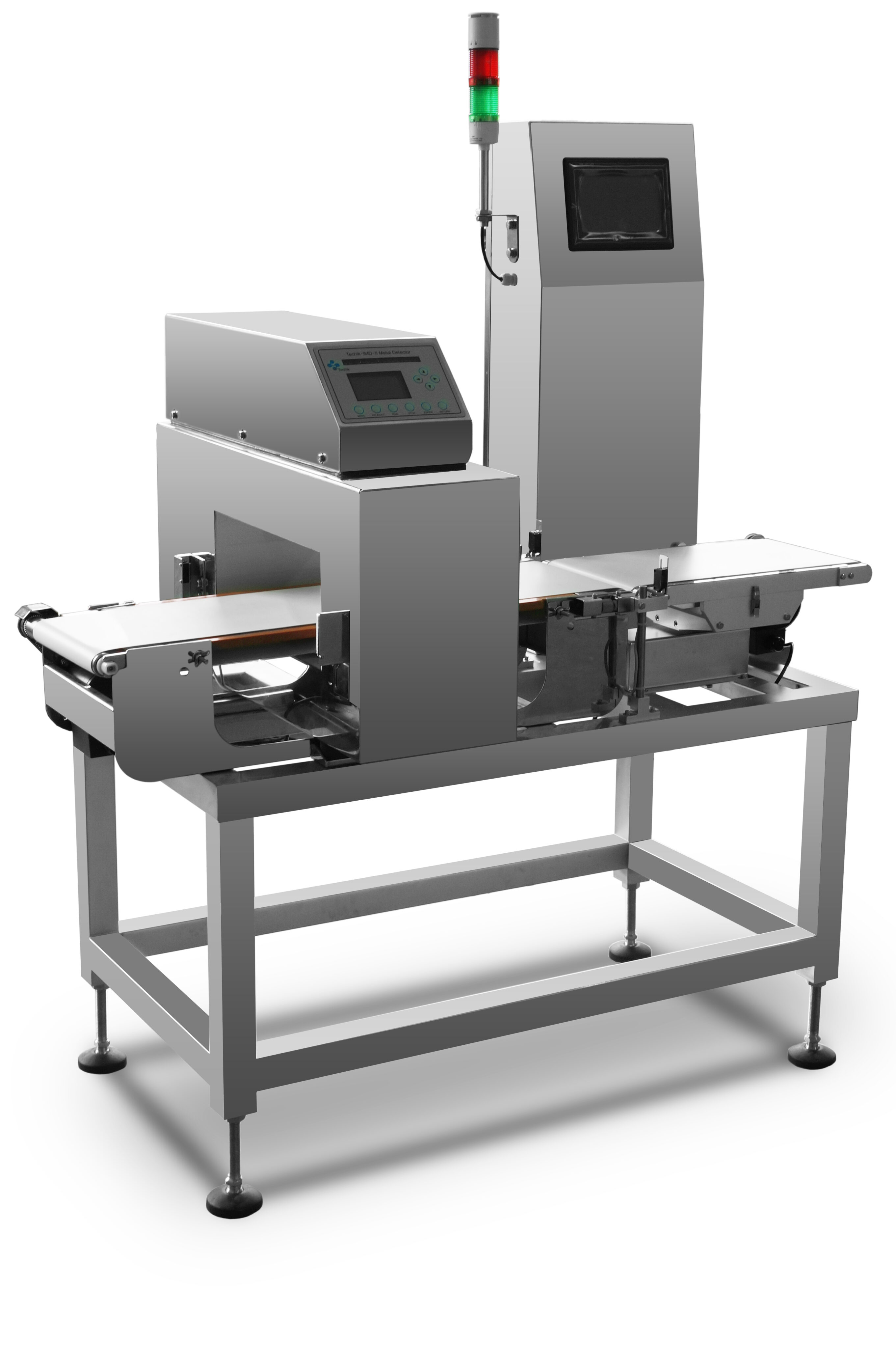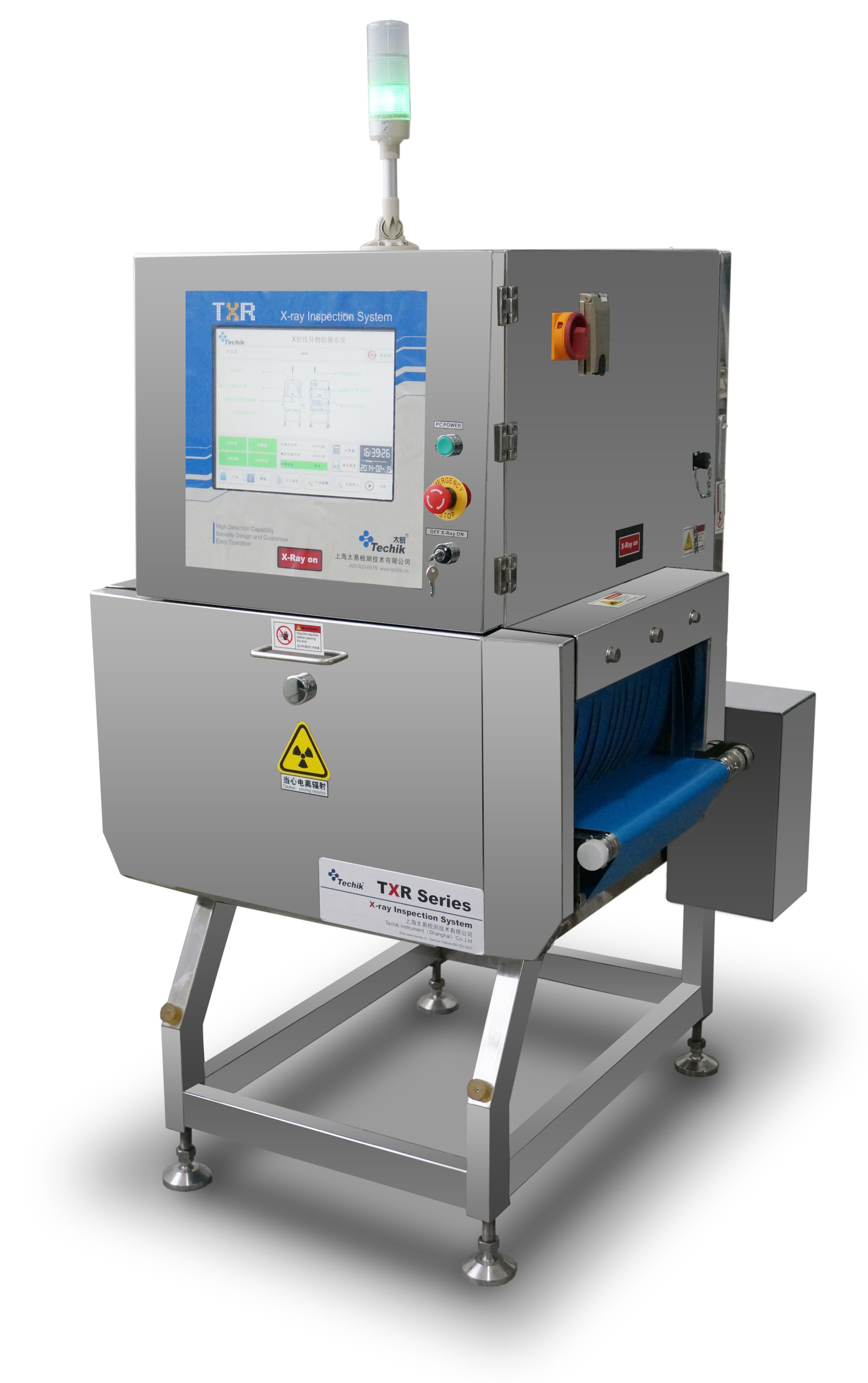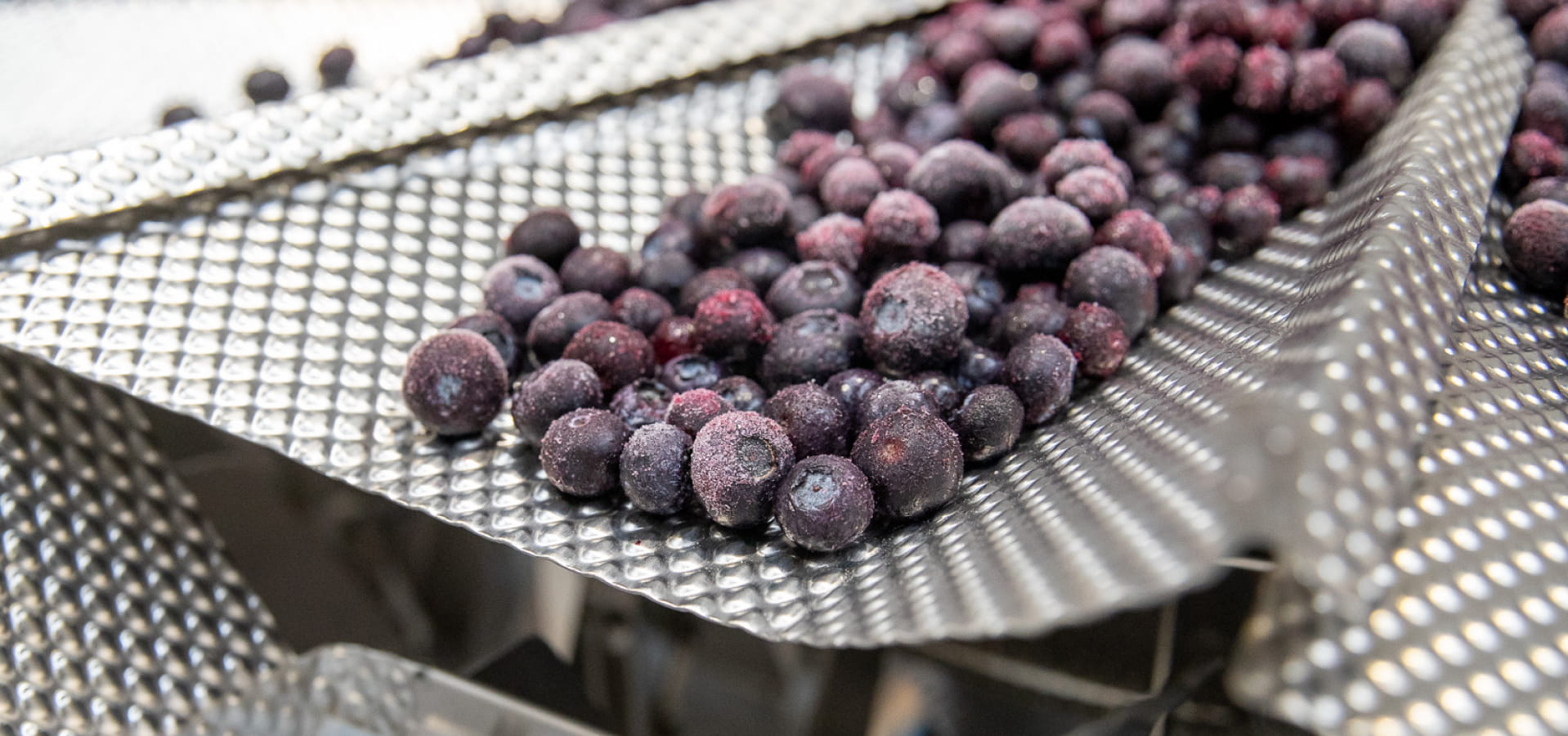What are food inspection systems?
Food inspection systems are devices used in the food manufacturing industry to ensure product quality, safety, and compliance with regulations. Two key types are checkweighers and food metal detectors.
Checkweighers are specialised scales used during the packaging process to ensure that the weight of each packaged item is within specified limits. They help you avoid underfilling (which can lead to unhappy customers) or overfilling (which wastes product).
Food metal detectors are used to find and remove any metallic contamination in food products. They’re vital for maintaining food safety, as even small metal fragments could cause harm to a consumer.
In short, food inspection systems make sure your products are safe, compliant, and consistent in their quality.
How do machines detect if food is acceptable for sale?
Food inspection systems, such as checkweighers and food metal detectors, help you efficiently detect if a food product is suitable for sale.
- Checkweighers: These machines confirm that the weight of a product falls within a pre-set range. If the weight of the product is too light or too heavy, the checkweigher flags it as unacceptable. For example, if you’re packaging 500g of cheese, a checkweigher will ensure each package is neither underfilled nor overfilled. Consistent weight not only satisfies customers but also helps meet trade measurement regulations.
- Food Metal Detectors: These machines scan food products for traces of metal contamination. If a metal fragment is detected, the machine will automatically reject the product. This is vital for ensuring consumer safety, as metal contaminants can pose serious health risks.
These systems work in tandem with other quality control measures such as visual inspections, taste tests, and laboratory testing for things like microbiological safety and nutritional content. By combining these methods, you can be confident that your food products are safe, compliant with regulations, and meet your quality standards.


